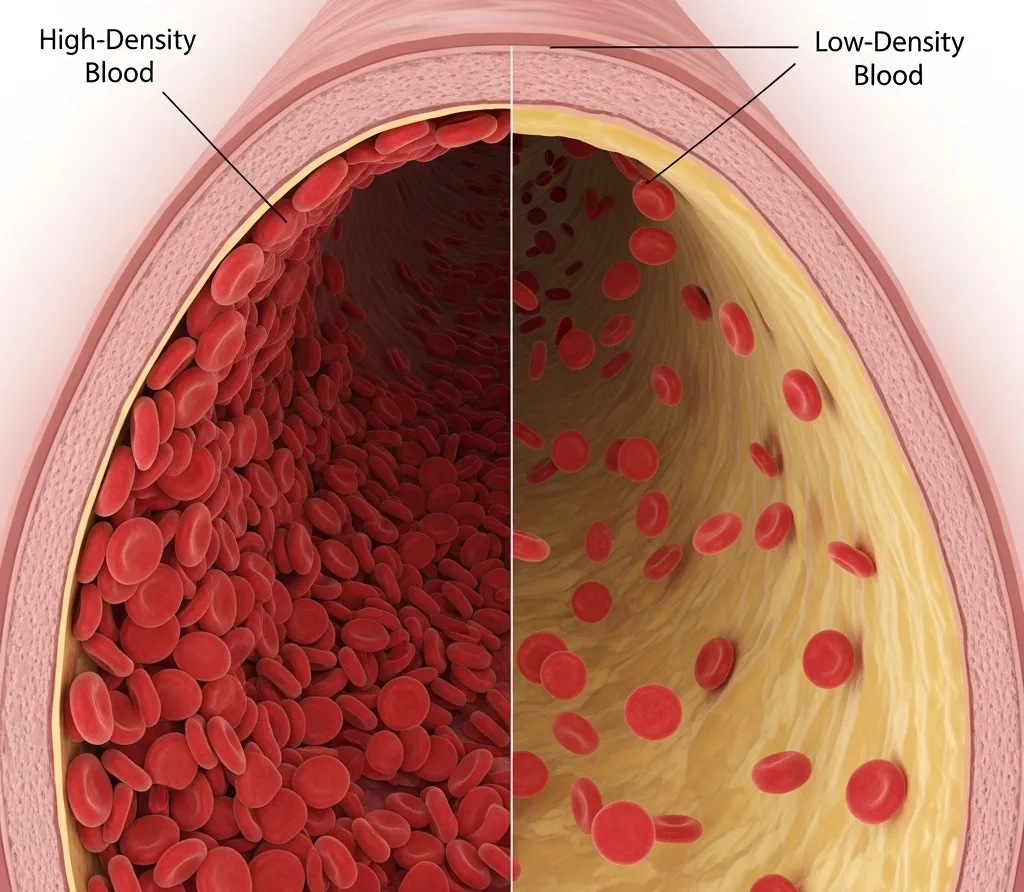Blood density, a lesser-known but critical factor in cardiovascular health, refers to the concentration of cellular components like red blood cells and hemoglobin in the blood plasma. While often confused with blood pressure, high blood density can independently pose significant health risks, potentially leading to severe complications and even death.
The Dangers of High Blood Density
High blood density, or polycythemia, can have profound effects on the circulatory system. When the blood becomes too thick, it moves more slowly through the veins and arteries. This sluggish flow can lead to a condition known as stasis, where blood pools in certain areas, increasing the risk of clots. These clots can block blood flow entirely, potentially causing organ damage or a life-threatening event like a stroke or heart attack. Organs, including the heart, kidneys, and brain, rely on a steady, free-flowing supply of oxygen-rich blood. When this supply is compromised, organ function can decline, leading to long-term health problems.
Common Causes and Misconceptions
High blood density can arise from various factors, many of which are lifestyle-related. A primary cause is dehydration, or insufficient water intake. When the body lacks water, the proportion of red blood cells to plasma increases, making the blood thicker.
It's a common misconception that drugs like aspirin or pentoxifylline can effectively lower blood density. While these medications can help prevent blood clots by making platelets less sticky, they do not address the root cause of the problem—the high concentration of blood cells. They are not a cure for high blood density.
Why Bodybuilders Are at Higher Risk
Bodybuilders and other athletes who use certain performance-enhancing drugs are particularly susceptible to high blood density. The use of erythropoietin (EPO) and certain anabolic steroids can stimulate the bone marrow to produce an excessive number of red blood cells, a process called erythropoiesis. A typical person has about 4 liters of blood, but for a bodybuilder, this volume can increase to over 6 liters due to this overproduction.
To manage this, it is crucial for individuals with high blood density to increase their fluid intake. A helpful analogy is a cup of dark, concentrated tea. You don't make it lighter by pouring some out; you must add water to dilute it. Similarly, to lower blood density, you need to increase your body's total fluid volume. Drinking more water is the primary recommendation. In some cases, to ensure proper electrolyte balance, a professional might recommend an electrolyte-rich saline solution instead of sugary sports drinks.
Key Indicators and Treatment
A simple blood test can reveal a person's blood density. For men, a hemoglobin level above 16-17 g/dL and for women, a level above 14 g/dL can indicate high blood density. The primary treatment for this condition is hydration. However, it is essential to consult with a healthcare professional to get an accurate diagnosis and a personalized treatment plan.

